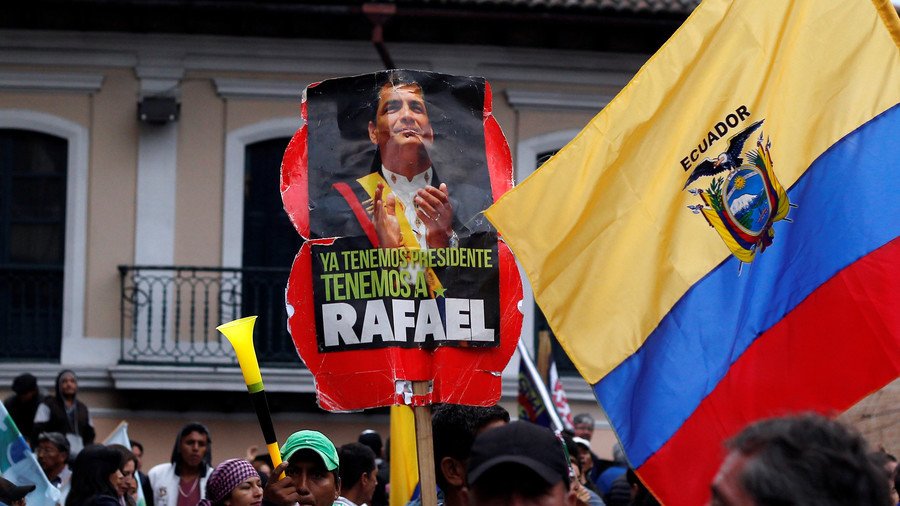The National Court of Justice of Ecuador has ordered the preventive detention of the country's former president Rafael Correa and requested that Interpol apprehend him for extradition.
The request for Correa’s detention was filed by the country’s chief prosecutor on Tuesday. The prosecution is accusing Correa, who served as the president of Ecuador from 2007 to 2017, of being involved in the kidnapping of Fernando Balda, a former opposition lawmaker, in 2012 in Colombia - charges that Correa vehemently denies.
Balda himself was charged with orchestrating a foiled coup attempt in 2010. The charges were filed when the lawmaker was in Colombia, from where he was eventually deported to Ecuador in 2012 and served a year in prison for endangering state security.
Correa, who is living in Belgium with his family, is up in arms over the court’s ruling, arguing on Twitter that the request to put him in custody was made without “a single piece of evidence.” He believes the extradition does not stand a chance at the international level.
“How much success will this farce have at the international level? Don't worry, everything is a matter of time. We will win!” he added.
In a string of tweets, Correa thanked his followers for the outpour of support he received after the news on the international warrant for his extradition broke. “ I thank everyone for their solidarity in the face of this new and serious abuse of justice and my rights,” he tweeted, adding that he doesn’t believe Belgium will comply with the request.
“They will seek to humiliate us and make us have a hard time, but such a monstrosity will NEVER prosper in a State of Law like Belgium,” he wrote.
One of the milestones of Correa’s foreign policy became granting asylum to WikiLeaks founder Julian Assange in 2012, who has since been holed up in the country’s embassy in London’s Knightsbridge. The move drew anger from the UK and the US, who sought the whistleblower’s arrest.
Correa was replaced in power by his former ally Lenin Moreno in April last year, after a close-call election. At the time, Correa welcomed Moreno’s victory as a “triumph of revolution.”
However, the two have since fallen out, with Correa branding Moreno a “traitor” and “a wolf in sheep’s clothing” after the latter proposed a constitutional referendum to limit the number of presidential terms, thus barring Correa from seeking re-election in 2021. The referendum held on February 4 ended in a victory for the Moreno government, with the majority of Ecuadorians voting to introduce the changes.
Moreno has signaled there will be a U-turn in the South American country’s foreign policy from Correa’s anti-American posture after he signed a security agreement with the US in April of this year.
The new president also took a tougher stance on Assange, calling him “more than a nuisance” and a “hacker,” which is more in line with the rhetoric coming from Washington. Although Moreno agreed to extend Assange’s asylum, the WikiLeaks founder’s Internet access and visitor rights were restricted over what the Ecuadorian government sees as his controversial online political activity.
Since February, Correa has been a host of his own show ‘A Conversation with Correa’ on RT Spanish, where he has interviewed prominent guests from Latin American political circles and beyond. Among those who sat down with the ex-president on the show were Brazilian ex-Presidents Dilma Rousseff and Luiz Inacio Lula da Silva, former Uruguayan President Jose Mujica, Argentina’s ex-leader Cristina Kirchner, American philosopher Noam Chomsky and others

